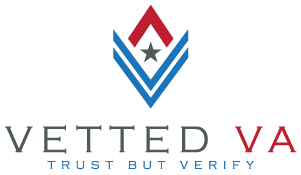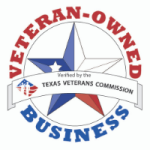Common Questions
What About…?
Reality: VA loans have the historically lowest default rate of any loan type, which means the buyer can afford the home with $0 down payment. Veterans are also some of the best at repaying their loans and honoring their commitments in borrowing money.
Actually, that is not true. You can access Split Entitlement. The calculations are a touch more complicated, but our Vetted VA Loan Officers will be able to walk you through the qualifications, remaining entitlement of your benefit, and how to utilize the benefit.
It is True. You can use your VA loan with a non-spouse co-borrower who is ALSO not a Veteran.
A VA loan is a government-backed mortgage for a qualifying Veteran or Service member. In these cases, with a non-spouse co-borrower who is also not a Veteran, they’re usually going to require a down payment of 12.5 percent to 14.5 percent.
Why the strange calculation? The VA typically guarantees, or insures, 25 percent of the Veteran’s loan. Having only one VA-eligible co-borrower on the loan means the lender has only half that guaranty. A down payment for the remainder helps reduce that level of risk.
A Veteran can choose to pay above appraisal value, but the difference above the appraised value is a closing cost and not part of the loan. It also cannot be covered by credits and must come from the Veteran’s funds (which can include gift funds).
Pest repairs can also be paid for by the Veteran. It is often a far better use of funds than putting in a down payment or having mortgage insurance with other loan options that don’t require section 1 pest clearance, and ultimately having to keep the bugs as house guests.
About VA Home Loans
The VA Home Loan benefit is an amazing benefit that guarantees the Lender in case of a Veteran defaulting on their home loan. However, the VA does not set the rates or market of VA Loans. That is up to the secondary market, which is where the lender comes in to play.
Real Estate loans are all about appetite for risk. Many lenders will charge higher fees buried in documentation to cover their risk and pay for marketing to attract Veterans who qualify for the VA loan.
Brokers will shop multiple lenders and cannot hide their fees like large lenders. So work with a Vetted VA Broker and let them do the shopping for you. Or, start meeting with many different lenders and compare the pricing for yourself.
There is no maximum loan amount; however, VA does limit its guaranty. VA loans have no loan limit any more as of January 1, 2020. If you make a down payment, your lender may loan a larger amount. While not a down payment, the guaranty often satisfies the lenders’ requirement that a portion of the home price be paid for up front (i.e. the down payment). This can save the home buyer the burden of making a down payment. The loan maximum itself may be up to 100 percent of the VA established reasonable value of the property. In addition, certain funding fees and closing costs apply, and you must be able to pay a portion of these fees up front. Generally, these fees range from 1.4 percent to 3.6 percent of the total loan.
The following is a quick list of reasons why a VA loan may be your best option:
- No down payment required
- VA funding fee may be financed in the loan
- VA Loans do not require perfect credit –there is no credit score cut-off
- VA funding fees may be waived for Veterans with VA rated service-connected disabilities and surviving spouses of Veterans with service-connected disabilities
- Closing costs may be shared between the buyer and lender
- Flexible mortgage types – fixed, hybrid and traditional ARMs
- No mortgage insurance premiums – this is huge in today’s housing market
- VA guaranteed mortgages are assumable
- No pre-payment penalties
- Homes are inspected and appraised by VA prior to approval and/or during construction
- VA can offer assistance to Veteran borrowers in default due to temporary financial difficult
- Refinance and Interest Rate Reduction loans are available
All in all, the pros far outweigh the cons. And, considering there are very few “no-down payment” mortgage options around that offer lower associated fees, using your VA home loan benefit seems like a no-brainer – as long as the red tape doesn’t scare you.
Debt-to-Income (DTI) ratio is your total monthly debt payments divided by your gross monthly income.
Let’s assume you are an E-6 over 8 years (base pay of about $3500/month), with housing allowance of $1500/month, and subsistence allowance of $365/month. Your total monthly income is $5365/month.
VA guidelines do not have DTI limits, but as a rule of thumb, most loan officers limit pre-approvals to 50%. So, if you make $5,365/month, you would most likely not be issued a pre-qualification letter with a mortgage payment that exceeds $2,682 minus your other monthly debts.
Those other debts include car payments, student loans (which have special circumstances), credit card minimum payments, boat loans, timeshares, military star card, etc.
No. You won’t lose points for multiple credit pulls. You can have your credit pulled multiple times in a 30-day period and it only counts against you once. You’ll lose a max of 2-4 points, if that.
Your better play would be to find a reputable broker from this group and have them shop your loan around to multiple lenders to find the best deal.
That way, you’re not having credit pulled a ton and you won’t receive a bunch of different information from different people.
The VA home loan benefit can be reused if you have paid off your prior VA loan and sold the property. In addition, you may, on a one-time-only basis, be able to reuse or restore your benefit eligibility if your prior VA loan has been paid in full and you still own the property. In either case, to restore your eligibility, you must send a completed VA Form 26-1880 to your VA Eligibility Center. (See VA Loan Documents Checklist)
To prevent delays in processing, you should also include evidence that the prior loan has been paid in full and, if applicable, the property disposed of. This evidence can be presented in the form of a paid-in-full statement from the former lender, or a copy of the Closing Disclosure (CD) settlement statement completed in connection with a sale of the property or refinance of the prior loan.
Depending on the circumstances, if you have already used a portion of your VA-guaranteed amount (up to $89,912), and the used portion cannot be restored, any remaining portion of your VA guaranty is available for use on another loan. You will have to ask your lender if your remaining VA-guaranteed portion will be enough, or if you will need to make a down payment to qualify for the loan. If you have a question about your specific case, contact VA.
Eligibility
No. Though the VA does not have a FICO score minimum, all lenders do, and some will go as low as 500 with compensating factors.
In all cases, it’s best to have a broker take a look at it.
No. Simply put, once you have a loan and then sell the property, you can get another VA loan. There are, of course, possible conditions to this, but the VA Home Loan allows for it.
Utilize a Vetted VA Loan Office to get your personal recommendations.
The major eligibility categories for a VA home loan include:
- Veterans and service persons who have served 181 active-duty days during peacetime, unless discharged or separated from a previous qualifying period of active duty service
- Veterans who served during World War II, Korea, or Vietnam, if they served for 90 days and were honorably discharged
- If you have served for any period since August 2, 1990, you can also qualify if you have served 24 months of continuous active duty, or the full period (at least 90 days) that you were called to active duty
- Those who have completed a total of six years in the Selected Reserve or National Guard
- An un-remarried spouse of a Veteran who died while in service or from a service connected disability or a spouse of a service member missing in action or a prisoner of war (note: A surviving spouse who remarries on or after attaining age 57, and on or after December 16, 2003, may also be eligible for the home loan benefit).
Applying
Refinancing
You can use your VA home loan benefit to refinance your existing VA home loan to a lower interest rate, with little or no out-of-pocket cost. This is called an Interest Rate Reduction Refinancing Loan (IRRRL), also known as a “rapid refinance” or a “streamline refinance.”
Generally, no appraisal, credit information, or underwriting is required for this refinancing option, although some lenders may require an appraisal and credit report. The fees and charges associated with the refinancing loan may be incorporated into the new VA loan.
Remember: The interest rate on the new loan must be lower than the rate on the old loan (unless you refinance an adjustable rate mortgage to a fixed-rate mortgage). To receive an IRRRL, work with your lender to process your application. It’s generally a good idea to compare several lenders’ rates first, as there may be differences in the terms they offer. Also, some lenders may contact you suggesting that they are the only lenders with the authority to make IRRRLs, but according to VA, any lender can make an IRRRL.
An IRRRL can be done only if you have already used your eligibility for a VA loan on the property you intend to refinance. If you have your Certificate of Eligibility, take it to the lender to show your prior use of the entitlement. The occupancy requirement for an IRRRL is different from that for other VA loans.
When you originally got your VA loan, you certified that you occupied or intended to occupy the home. For an IRRRL, you need only certify that you previously occupied it. The loan may not exceed the sum of the outstanding balance on the existing VA loan, plus allowable fees and closing costs, including the funding fee.




